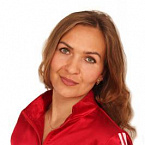Physical Training
A high level of efficiency and good health are essential features of a modern specialist. At the same time, the main conditions for good health and high performance are maintaining a healthy lifestyle and regular exercise. This course helps students to master the main components of a healthy lifestyle and basic methods and principles of use physical exercises for improving a person’s health and increasing physical efficiency. The course helps students to master the basic components of a healthy lifestyle, as well as the basic methods and principles of using physical exercise to improve human health and physical performance.
The goal of mastering the discipline
To form the competence in the field of physical education and sports for maintaining and improving health, increasing the level of psychophysical training and self-preparation for future professional activities.
The skills you get
- Know basics of methods of physical education, the concept of sport and classification of sports, basics of methods of independent physical exercises, the main methods of self-control over the state of the body.
- Be able to use physical exercises to solve specific tasks of physical education, independently choose a sport or a system of physical exercises accordingly to the personal characteristics, implement self-control and correctly assess the state of the body based on its results.
- Have the skills to use modern health-saving and health-forming technologies that ensure a high quality of life.
Topics covered
- 1. Physical culture in professional education of students
- 2. Socio-biological basics of physical culture
- 3. Basics of a healthy lifestyle of a student
- 4. The use of physical exercises for the optimization of working capacity
- 5. Professionally applied physical training of students
- 6. General and special physical training in the system of physical education
- 7. Sport
- 8. Individual choice of sports or physical exercise systems
- 9. The basics of the methods of unaided physical exercises and self-control over the state of the body
- 10. Modern methods of fitness
- 11. Adaptive physical education
When instructed
- 1st year, 2nd semester
List of references and sourses
1. (1973) Physical Activity. Human Growth and Development / Edited by G. Lawrence Rarick. New York San Francisco London, Academic press, https://doi.org/10.1016/B978-0-12-581550-5.X5001-6.
2. (2017) Physical Activity and The Aging Brain. Effects of Exercise on Neurological Function / Edited by Ronald Ross Watson. Amsterdam, Boston, Heidelberg, London, New York, Oxrord, Peris, San Diego, San Francisco, Singapore, Sydney, Tokyo, Academic Press is an imprint of Elsevier.
3. Greg LeMond, Mark Hom (2014) The Science of Fitness. Power, Performance, and Endurance. Amsterdam, Boston, Heidelberg, London, New York, Oxrord, Peris, San Diego, San Francisco, Singapore, Sydney, Tokyo, Academic Press is an imprint of Elsevier.
4. Timothy Lynch (2019) Physical Education and Wellbeing. Global and Holistic Approaches to Child Health. Cham, Palgrave Macmillan, https://doi.org/10.1007/978-3-030-22266-6.

 Phone
Phone
 Mail
Mail